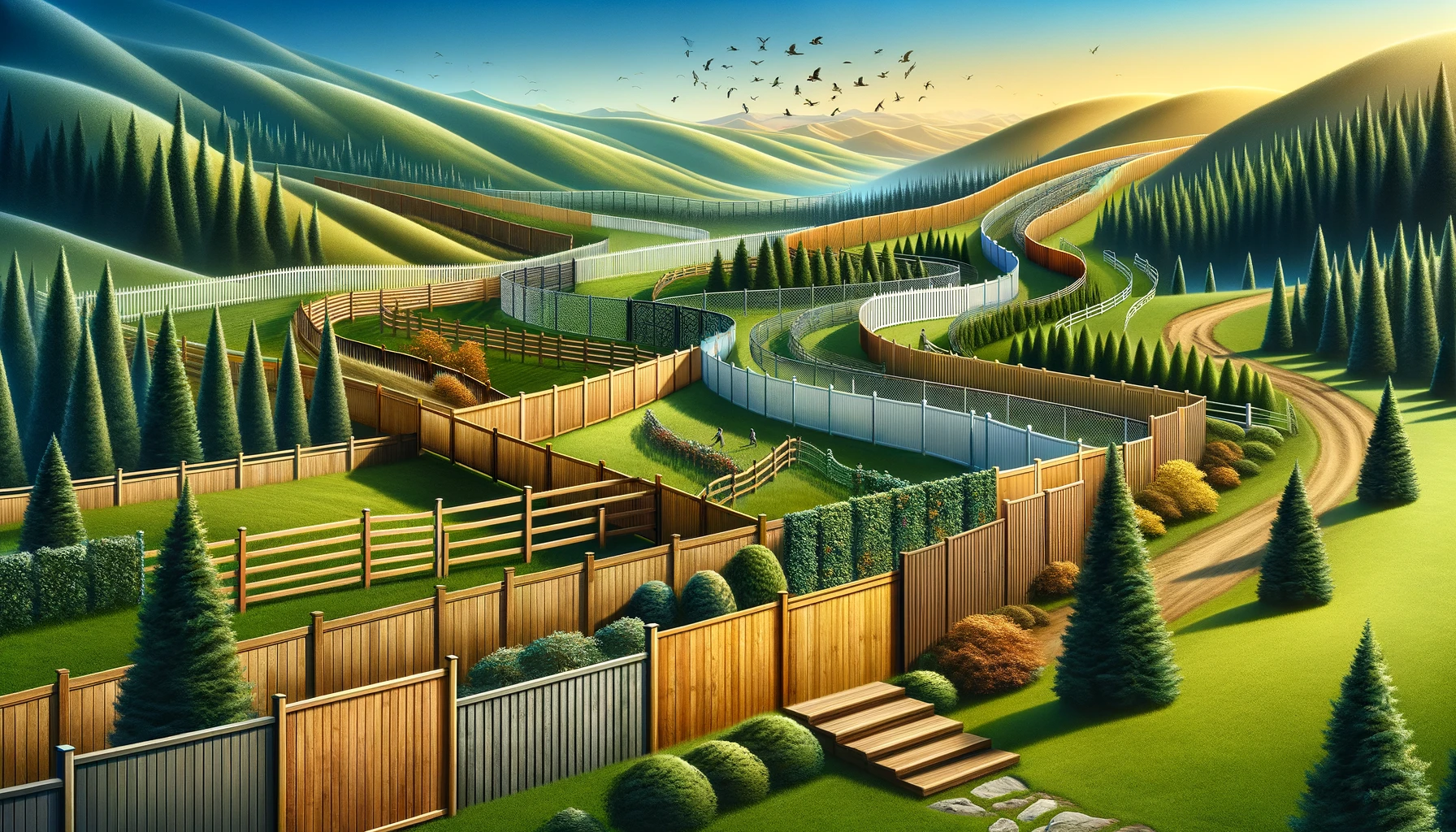
When it comes to selecting the right fence for your property, understanding the myriad of options available is crucial. Fencing serves a variety of purposes, from enhancing privacy and security to beautifying your landscape or containing livestock. In this guide, we delve into the diverse world of fencing, exploring the unique attributes, benefits, and applications of different types. Whether you’re a homeowner, a farmer, or a business owner, this guide will help you make an informed decision tailored to your specific needs.
Chain link fences are a ubiquitous sight, known for their durability and cost-effectiveness. Made of woven steel wire, these fences are ideal for defining property boundaries and securing areas without obstructing the view. They are low maintenance and offer strong resistance against harsh weather, making them a practical choice for both residential and commercial properties.
Applications: Residential yards, playgrounds, sports fields, industrial areas.
Security fences are designed to protect properties from unauthorized access or theft. These fences are typically higher than standard ones, often topped with barbed wire or razor wire to deter intruders. Materials vary from heavy-duty chain link to reinforced steel, depending on the level of security required.
Applications: Commercial properties, industrial sites, government buildings.
Game fencing is tailored to wildlife and livestock owners, designed to prevent the entry or exit of animals. This type of fencing is usually higher and more robust than traditional fences, ensuring that even large animals cannot breach the barrier. It’s essential for maintaining biodiversity, protecting crops, and managing animal populations.
Applications: Farms, ranches, wildlife reserves.
Ranch fences, traditionally made from wood or vinyl, are synonymous with the countryside charm. They are used to demarcate property lines and contain livestock. While offering a rustic aesthetic, modern ranch fences are also designed for durability and ease of maintenance.
Applications: Ranches, rural properties, large residential estates.
Design Master fences combine the strength of welded steel with an artistic touch. These fences offer both security and aesthetic appeal, making them a popular choice for those who don’t want to compromise on either. With various patterns and designs, they can be customized to complement the architectural style of any property.
Applications: Educational institutions, parks, residential properties.
Iron fences are highly sought after for their elegant design and robust structure. Often used in historical and upscale properties, these fences offer not just security but also add a significant aesthetic appeal to any landscape. They are, however, on the higher end of the price spectrum and require some maintenance to prevent rust.
Applications: Heritage sites, luxury homes, gardens.
Privacy fences are primarily used to create a private oasis in your backyard or to shield your property from prying eyes. Typically made from wood, vinyl, or composite materials, these fences are tall and lack gaps, ensuring a secluded space. They also act as a sound barrier and windscreen.
Applications: Residential properties, private resorts, commercial spaces requiring privacy.
Barbed wire fencing is one of the most cost-effective methods to secure large areas. Consisting of strands of wire with sharp edges, it’s mainly used in rural areas to contain livestock and secure property perimeters. While not the most aesthetically pleasing, its effectiveness as a deterrent is unparalleled.
Applications: Farms, industrial areas, military zones.
Fence arches are more about aesthetics than functionality. They are often used as entry points or to enhance the visual appeal of a garden or yard. While not a fence type per se, incorporating arches into your fencing design can significantly elevate the overall appearance of your property.
Applications: Gardens, walkways, parks.
In conclusion, the type of fencing you choose will significantly depend on your specific needs, whether it’s security, privacy, animal containment, or aesthetic enhancement. Each fencing type offers unique benefits and considerations, and understanding these can guide you in making the best choice for your property. Remember, a well-chosen fence not only secures your premises but also adds value and character to your property.